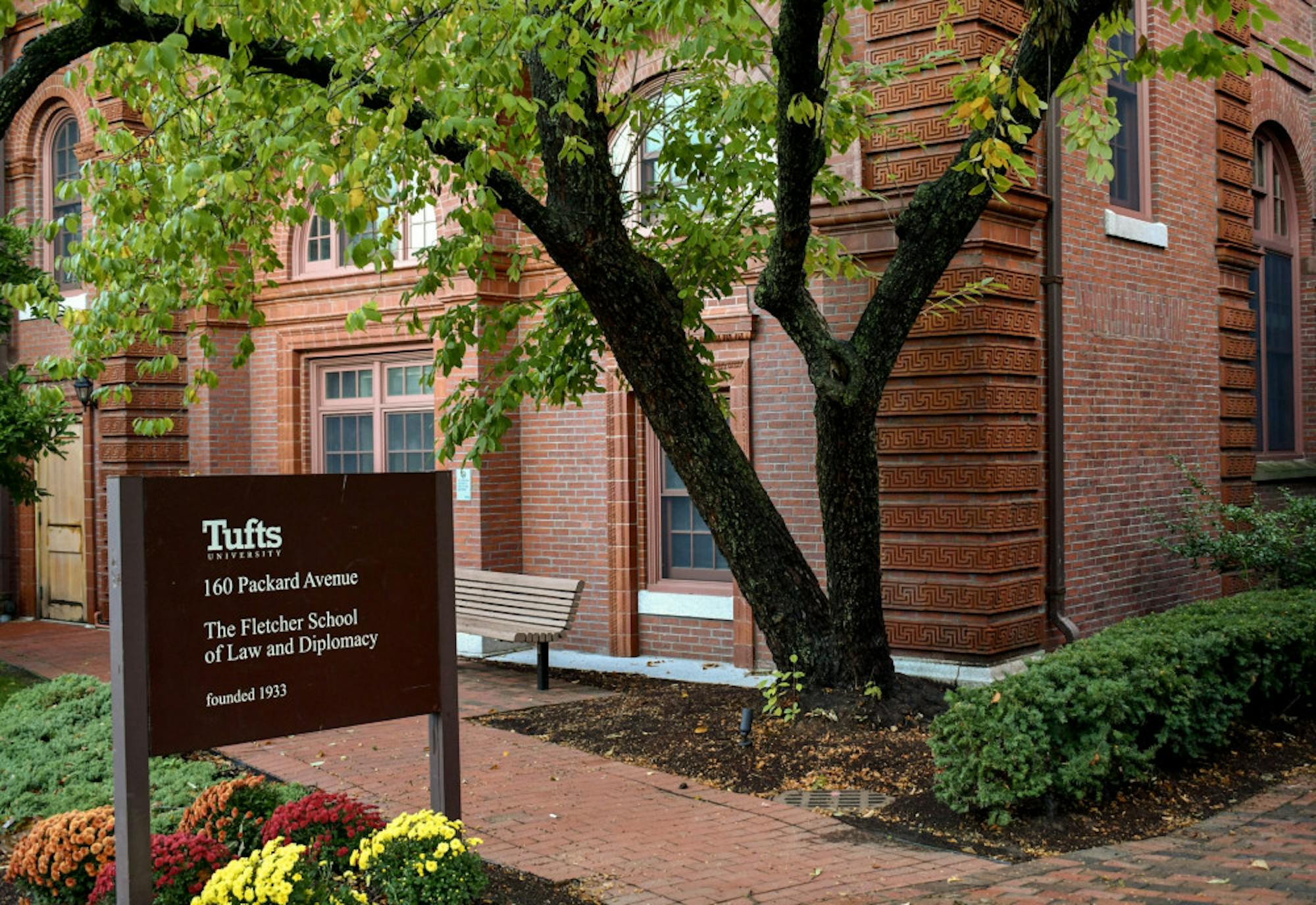The Fletcher School continued its Afghanistan crisis webinar series with a virtual panel on Oct. 14. The webinar featured commentary and perspectives from three members of the Fletcher community.
Sarah Chayes, former special advisor to the Chairman of the Joint Chiefs of Staff Admiral Mike Mullen, moderated the conversation.
Chayes, an award-winning author and journalist who lived in Afghanistan for a decade, introduced alumna Raseema Alam (F'07), a retired Canadian diplomat and recipient of the Governor General of Canada's Operational Service Medal for her deployment at the Embassy of Canada in Kabul.
The final panelist, novelist and journalist Elliot Ackerman (F'03), was awarded the Silver and Bronze Stars for valor and a Purple Heart during his five deployments to Afghanistan and Iraq.
Chayes began by questioning the relationship between allies in this complex multinational crisis.
"Since Canada had oversight over Kandahar province, what I realized was [Canadians] didn't have freedom of motion, entirely," Chayes said to Alam. "You were, to a significant effect, I think, subservient to the United States."
Alam responded that Camp Nathan Smith, the base in Kandahar that was managed and operated by Canadians, had some constraints. Simultaneously, the Canadians had their own objectives and were in constant coordination and collaboration with Americans.
Alam explained that ally relationships can often be expressed through actions rather than words, such as the Kandahari appointment of a Canadian citizen as governor.
"This was the first [of] this level of international commitment by Canada since Korea," Alam said. "The 3D model ... defense, diplomacy and development ... made it easier to implement by having known civil society, known actors and known people in Kandahar province."
Chayes asked Alam to describe her recent involvement in the Afghanistan crisis.
"I had many former staff of our embassy [and] current staff of some of my UN programs reach out to me in cries and desperation for help to leave the country … one person sent me an email of a death threat that they had received," Alam said. "Canadian public servants, we're very dedicated ... So, of course I was going to respond any way I could."
She elaborated that some of her partners worked in Canadian-funded programs that were not a part of the embassy, so they did not have the same autonomy. Alam took advantage of her position outside of the government to help.
"I'm not in the government anymore, so I can say what I want," Alam stated.
The conversation then shifted to Ackerman and his insights, while exploring the repercussions of war for service members and Afghans.
"I think sort of the bumper sticker, at least that the administration was selling with this withdrawal strategy, was that it's time to end forever wars," Ackerman said. "No one likes forever war … but it begs the question of, ‘What does it mean to be at war?’"
He further claimed that America sells the dangerous narrative that war has a clear beginning, middle and end, with Americans emerging victoriously.
"The inception of the Iraq War or the September 11 attacks ... that war was ending in an unconditional U.S. defeat," Ackerman said. "I think that, only speaking for myself, was a very, very bitter pill to swallow."
The panelists concurred that, because of the war's duration, it was waged in an intimate way.
"In our field of special operations intelligence, we had our target list, the people we were going after, our adversaries," Ackerman said. "We knew exactly who they were. We had their photographs. We tracked their movements. We were in these elaborate games of cat and mouse with them. And oftentimes, we would hear that they had come to learn who we were."
For many citizens, it was considered a forgotten war. Ackerman said that, leading up to the 2018 midterm elections, 42% of Americans who were polled did not know if the War in Afghanistan was still happening.
"I think seeing that type of collapse and seeing the end be so personal is something I'll carry with me for the rest of my days," Ackerman said.
Chayes raised the issue of whether it is possible that the way a war is ended can be as imperialistic as the way it was started. Ackerman responded that the Biden administration believed that it could make the case that it was not the cause of the collapse.
"I understood the game [the Biden administration] was trying to play," Ackerman said. "The second they didn't get their decent interval [to make this case], the writing was on the wall that it would be a failed policy."
The panelists suggested the government's pullout did not result in a seamless transition as was hoped. Chayes reflected that its attempt to save face comes at a great price.
"If we don't see Afghanistan as a mirror reflecting our own country's dysfunction, we may be headed to a similar fate to Afghanistan," Chayes said. "That's a pretty heavy warning to leave us on, but I think it's serious."






